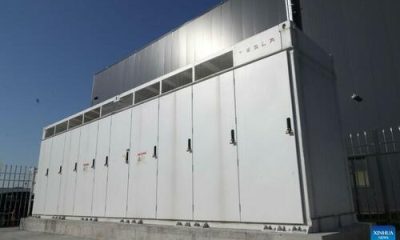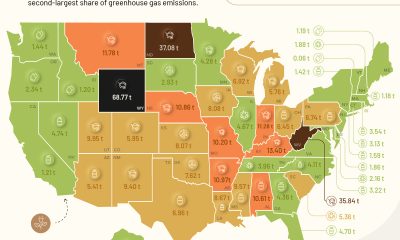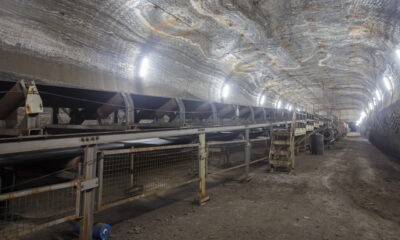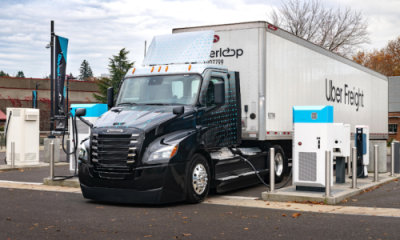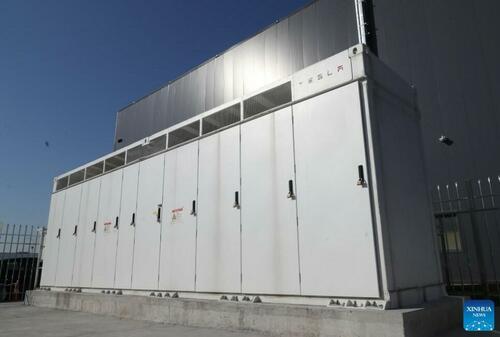Energy & Critical Metals
Delivering a more efficient and resilient energy system
Cogeneration has an important role to play in facilitating the transition to a more efficient, resilient, decentralised and carbon neutral energy system,…

Cogeneration has an important role to play in facilitating the transition to a more efficient, resilient, decentralised and carbon neutral energy system, argues Hans Korteweg.
For EU policies such as the European Green Deal and REPowerEU to be successful in achieving their ambitious objectives, it will be necessary to mobilise and utilise all available solutions.
This means supporting the deployment of renewables while making the best use of new technologies and improving energy efficiency throughout the whole energy system.
At COGEN Europe, we are convinced that cogeneration has an important role to play in cost-effectively facilitating the transition to a net zero emissions energy system.
This article was originally published in The Guide 2022-2023,
our exclusive, annual print magazine.
Read more articles from the magazine.
Cogeneration technologies can contribute to preventing energy waste and enhancing energy efficiency, thereby helping to control energy costs for industry, district heating and households, whilst also supporting the resiliency, adequacy and affordability of the energy system as a whole.
Most people are completely unaware of how much energy is wasted during the generation and transmission of electricity. In the US, the Energy Information Administration has calculated that energy losses in the electrical system amount to 65%.
At EU level, Eurostat estimates that 45% of energy inputs to heat and power generation are wasted. In the current context – with high energy prices and pressure on supplies – this amount of energy waste is unacceptable.
In sharp contrast to power-only generation, the latest cogeneration technologies currently on the market can deliver efficiency rates of more than 90%. In other words: less than 10% of the energy is lost. All of the remaining energy is captured and can be used by households and businesses either as electricity or to provide heating or cooling.
The significance of this becomes even clearer when one considers that, according to official data, heating and cooling in buildings and industry currently accounts for 50% of the EU’s annual energy consumption.
Cogeneration already plays a significant role today – providing 11% of all the electricity and 15% of the heat that is currently used in the European Union. At COGEN Europe, we see the potential for increasing the role of cogeneration in the coming years so that in 2030 it will meet 20% of the electricity demand and 25% of the heat demand in the EU.
“Cogeneration should be seen as complementing rather than competing with other solutions.”
By 2050, cogeneration will continue to contribute towards a resilient and efficient energy system with net-zero emissions.
A recent study commissioned by COGEN Europe estimates that Europe’s total cogeneration capacity could be expanded from 120GW today to 160GW by 2050, meeting up to 16% of electricity demand and 27% of heat demand.
In such a scenario, CHP would benefit all European consumers, including district heating networks, industry and households, reducing their energy costs.
Moreover, an increased cogeneration capacity will be crucial for supporting an increasingly electrified and renewable energy system by providing a flexible and cost-effective backup supply of power and heat during times of peak demand and when supplies of electricity from renewables are insufficient.
Many industries already use cogeneration technologies to provide them with the electricity and heat they need, and also to ensure that heat produced during industrial processes is captured and re-used – instead of being wasted.
Industry leaders unite behind cogeneration in letter to EU Commission
Examples can be found across a wide range of industries including chemicals, ceramics, aluminium, paper and wood products, as well as the food and beverage sector. We see considerable scope for expanding the role of cogeneration in industry, especially to enable the efficient use of carbon neutral and renewable energy sources including gases, waste heat, biomass, residual municipal waste and others.
Another sector where cogeneration will play a growing role is district heating and cooling – or DHC. Currently, 70% of the district heating and cooling networks in Europe are using cogeneration technologies to produce electricity and heat (or cooling) that is then used by households and businesses locally.
Governments and public authorities increasingly recognise that DHC networks provide a means to reduce CO2 emissions, whilst also facilitating the deployment of renewable energy sources in heating and cooling.
This can be achieved by using hydrogen as a means of storing energy from intermittent renewables whilst fostering synergies between electrification and the optimised use of cogeneration to enhance efficiency, flexibility and resilience.
The future of cogeneration will be as part of an increasingly integrated and decentralized energy system that uses digital technologies to cost-effectively match supply and demand.
Cogeneration has a key role to play in complementing intermittent sources of renewable energy such as solar photovoltaic and wind, which cannot be relied upon to meet peaks of demand for electricity and heat – notably during the winter.
It can also support the uptake of renewable gases such as biogas, biomethane and clean hydrogen – by ensuring that these sources are used as efficiently as possible.
15% – The percentage of heating used in the EU currently provided by cogeneration
Cogeneration should be seen as complementing rather than competing with other solutions. On the electricity side, cogeneration will displace less efficient thermal power plants, providing electricity at times of peak demand and at times of insufficient wind or solar power.
As far as heating and cooling is concerned, cogeneration will be vital for meeting demand that cannot be cost effectively electrified such as process heat, which many industries require around the clock.
Europe has committed itself to following the path towards a net-zero emissions energy system that relies on a range of increasingly carbon neutral and renewable energy sources.
In order to achieve this vision cost effectively, both for consumers and for the energy system as a whole, cogeneration technologies must play an integral role in terms of enhancing efficiency and boosting resilience, while continuing to meet the everyday energy needs of households and businesses.
AUTHOR

Hans Korteweg is Managing Director of COGEN Europe.
The post Delivering a more efficient and resilient energy system appeared first on Power Engineering International.

Uranium Exploration Company Announces Additional Staking in the Athabasca Basin
Source: Streetwise Reports 12/22/2023
Skyharbour Resources Ltd. announced an update from its Canada-based Falcon Project along with additional…
Tesla Launches New Mega Factory Project In Shanghai, Designed To Manufacture 10,000 Megapacks Per Year
Tesla Launches New Mega Factory Project In Shanghai, Designed To Manufacture 10,000 Megapacks Per Year
Tesla has launched a new mega factory…
Giving thanks and taking stock after “a remarkable year”
An end-of-year thank you to our readers, industry colleagues and advertisers before Electric Autonomy breaks from publishing until Jan. 2
The post Giving…


